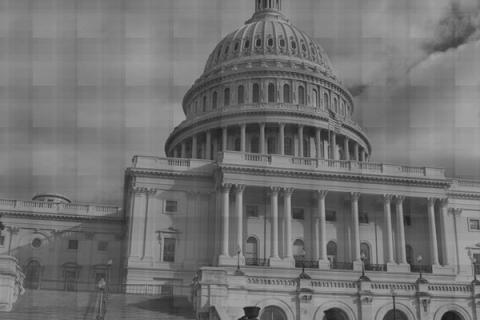After sweeping into the world of politics with an impressive showing this last November, the Tea Party movement-- characterized by its commitment to lower taxes, less spending, and less government intervention into the economy-- swept into the world of cinema this April 15th, the IRS deadline for filing income taxes informally known as "tax day."
The Atlas Shrugged film, an adaptation of philosopher Ayn Rand's bestselling novel, opened in select theaters throughout the United States to mixed reviews. Set in a somewhat dystopian near-future with many parallels to our world today, Atlas Shrugged is the story of a society in a time of economic and moral crisis. The plot centers on the mystery surrounding the disappearance of society's most able geniuses of production, its "robber baron"-like giants of industry. Ayn Rand wrote the novel as a sort of extended parable to praise hard work and rugged individualism while criticizing welfare statism, regulatory statism, and crony capitalism.
Ayn Rand summarized her ethical system this way:
"Man--every man--is an end in himself, not the means to the ends of others. He must exist for his own sake, neither sacrificing himself to others nor sacrificing others to himself. The pursuit of his own rational self-interest and of his own happiness is the highest moral purpose of his life."
From this principle, she derived her political philosophy:
"The ideal political-economic system is laissez-faire capitalism. It is a system where men deal with one another, not as victims and executioners, nor as masters and slaves, but as traders, by free, voluntary exchange to mutual benefit. It is a system where no man may obtain any values from others by resorting to physical force, and no man may initiate the use of physical force against others."
Atlas Shrugged was the culmination of Ayn Rand's work as a novelist, and a meticulous outline of Ayn Rand's philosophy. Rumors of a film adaptation have been flying for nearly two decades now as that adaptation has finally become a reality. Famed film critic, Roger Ebert skewered the film, writing:
"And now I am faced with this movie, the most anticlimactic non-event since Geraldo Rivera broke into Al Capone’s vault. I suspect only someone very familiar with Rand’s 1957 novel could understand the film at all, and I doubt they will be happy with it."
Even some libertarians and Tea Party sympathizers were pretty brutal in their review of the film. At Reason Magazine, Kurt Loder quipped, "Where is John Galt?", a twist on the film and novel's iconic query: "Who is John Galt?", and a criticism of the filmmakers' decision to turn the novel into a trilogy instead of a single presentation. Loder also wrote:
"It’s a blessing, I suppose, that Ayn Rand, who loved the movies, and actually worked extensively in the industry, isn’t alive to see what’s been made of her most influential novel."
Meanwhile, Megan McArdle called Shrugged "an incoherent mess" in a review entitled "Atlas Winced," writing:
"It was a huge mistake to watch it on a laptop; I spent the entire time fighting a nearly overpowering urge to check my email."
Not to be outdone, Dave Weigel penned a review of the film entitled "Libertarians Shrugged," noting that for libertarians, the film adaptation of Atlas Shrugged was at least "not as bad as they had feared it would be." This was not true, however, for all libertarians. Reason Magazine editor, Brian Doherty wrote a balanced, but overall positive review of the film, which he argued was "definitely better than merely 'not a disaster.'"
Perhaps most interesting, many of Ayn Rand's closest supporters and adherents to her philosophy of Objectivism have gushed over the film. For those unfamiliar with Objectivism, this might seem like an obvious bias, but it's actually quite remarkable because of the exacting standards Objectivsts tend to have when it comes to art and certainly to any interpretation of their beloved Ayn Rand's philosophy and works of fiction.
How will the general public receive the film? It's already trading at a level on the Hollywood Stock Exchange to suggest a $1.2 million opening on only 300 screens. Like both the Tea Party movement and the original novel from which Shrugged was adapted, there's a good chance that it will bore and annoy many media elites as it already has, but enjoy widespread popularity through word-of-mouth, driven by a strong demand among Tea Party goers for expressions of their political views in art.

